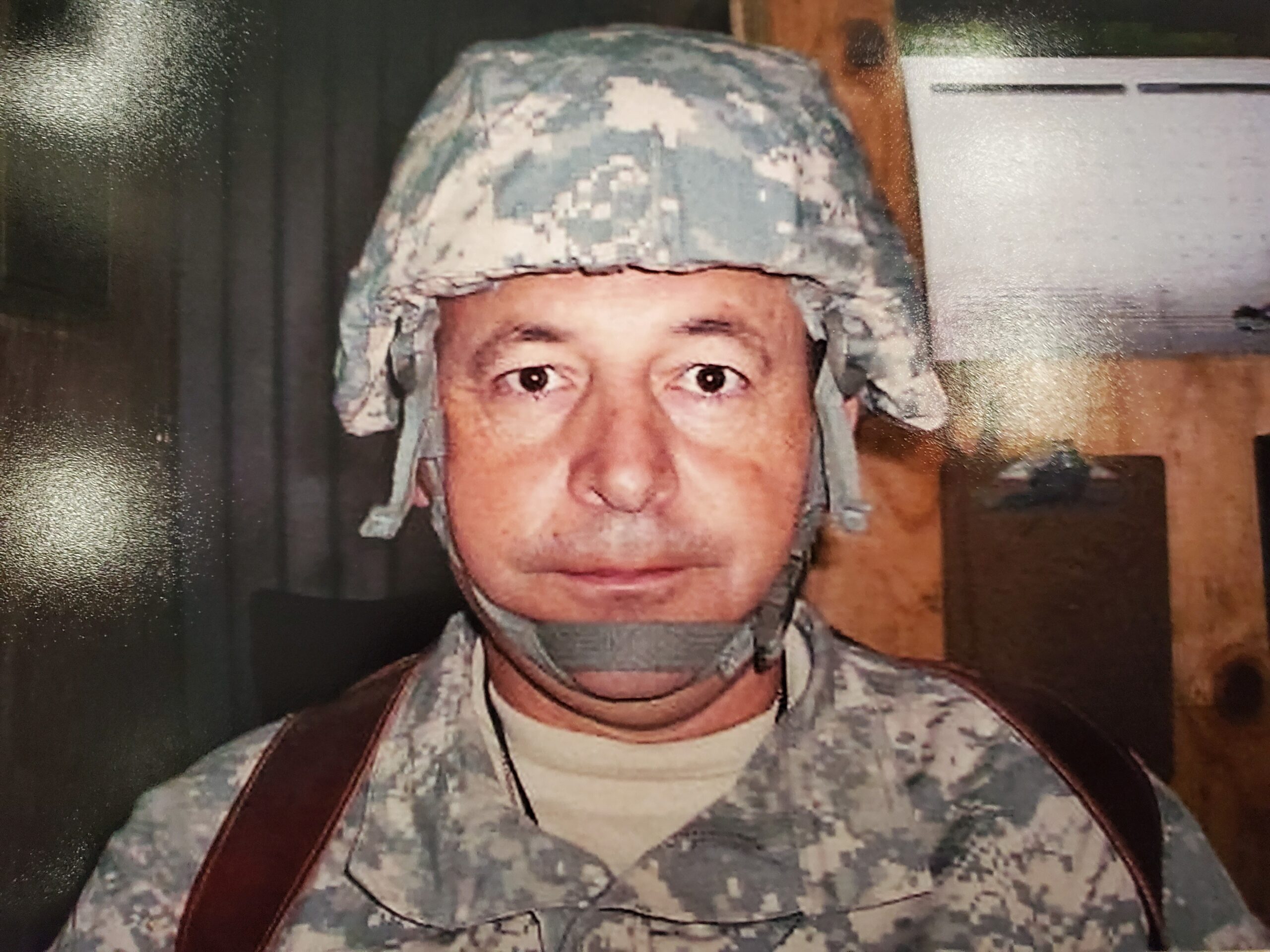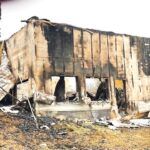
PRESQUE ISLE, Maine — When James Poullaides of New Limerick returned home to Chelsea, Massachusetts, after serving six months in Iraq with the U.S. Army, he faced challenges that often plague many combat veterans: learning to live with the painful memories of war.
From Sept. 2007 to March 2008, Pollaides, then 49, and his unit were stationed in a northern province of Iraq, fighting against terrorist organizations. To this day Poullaides, who is now 60, cannot discuss the specific details of his unit’s missions, but still vividly remembers the enormous risks he and his fellow soldiers took every day.
“During one mission I lost two of my friends who were with me, in a suicide bomber attack,” Poullaides said. “I lost another friend after our deployment when he took his own life.”
Poullaides’ time in Iraq was not his first experience in the military, having served five years of active duty in the U.S. Marine Corps from 1978 to 1984. He felt inspired to serve his country again after the World Trade Center attacks in New York City on Sept. 11, 2001, and joined the National Guard in 2006. He completed three months of training in New Jersey before the Army deployed him to Iraq.
But Iraq was the first time that Poullaides experienced active combat.
“We were dealing with terrorists every day, so there were some very intense missions,” Poullaides recalled on Oct. 29 at the University of Maine at Presque Isle, where he is now a student. “It was overwhelming to realize you could die at any moment. Those experiences are tough to live with, even 11 years later.”
When he left Iraq, Poullaides found it difficult to adjust to civilian life. He worked in ministry, but still longed for a more quiet, serene place to call home. In 2017, he moved from Massachusetts to New Limerick and soon realized the goal of continuing his college education. He previously took courses at Bunker Hill Community College in Boston.
Poullaides is now a junior at UMPI, majoring in criminal justice. After he graduates in 2021, Poullaides hopes to attend law school, become a lawyer and use his position to help veterans access social services that are crucial for them to make the transition from the military to civilian life.
“I think a lot of people in the general public don’t have a clue about what veterans go through or how they could reach out and help,” Poullaides said. “With my education and, hopefully, my law degree, I want to help young people and veterans who might not be able to afford a lawyer.”
While many young veterans struggle with memories of combat during the transition back to civilian life, the challenges for others stem from not wanting their time in the military to be the only thing that defines them.

David Lambert of Presque Isle, seen here in an undated photo, is one of many veterans at the University of Maine at Presque Isle who have used their college education as a way to move forward after military life.
(Courtesy of David Lambert)
David Lambert, 25, of Presque Isle is a history major at UMPI who served in the U.S. Marines for four years, with his service ending in January 2019. Throughout his service, Lambert was stationed in South Korea and Arizona as an ordnance equipment repair technician.
“Basically, I built bombs,” Lambert said, while at UMPI on Oct. 31.
Despite being in South Korea during a time when nuclear missile tests were occurring, Lambert never experienced active combat or dealt with serious threats to the U.S. Marine base.
He said that his college education has played a major role in his ability to move on from his identity as a soldier.
“I’m proud to have served my country, but for me the biggest thing right now is finding a new sense of purpose,” Lambert said. “I’ve been reluctant to talk about being a veteran because I don’t want people to just think, ‘Oh, that’s Dave the Marine.’”
For Lambert, one of the most common misperceptions he hears about veterans is that they all experience some form of post-traumatic stress disorder, also known as PTSD. In reality, not all veterans have experienced combat.
Those who have not seen combat still face challenges in adjusting from a rigid, intense work schedule to a lifestyle that is more relaxed.
“I went from getting up at 5 a.m. every day and having a schedule that was defined by orders to being able to do what I wanted. It feels very sudden and can be scary,” Lambert said.
Taking classes online while in the Marines allowed Lambert to come to UMPI as a junior. He is on track to graduate in 2020 and hopes to earn a master’s degree and work in public administration.
He encourages veterans who have gone through similar challenges after their service to remain hopeful and to embrace opportunities to build a new life for themselves, whether that comes from education or other goals, and to remain close to family, friends and people they care about.
“What all of this has taught me is that I’m capable of a lot more than I thought I was,” Lambert said. “In order to build something new, you have to let something old go.”







